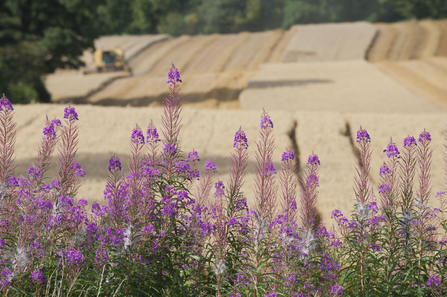
Farm landscape
How we're working with farmers and landowners
Gloucestershire Wildlife Trust has worked with farmers for a long time in a variety of ways to support wildlife in the county; we're now expanding these relationships so that we can work together in a concentrated effort to halt and reverse wildlife decline.
Pressures on the countryside from climate change and the varied and many demands on land use has led to an emergency that we cannot solve alone. We recognise that we don’t manage all the wildlife or wild places in the county, and that working together with farms will be key in making space for wildlife throughout Gloucestershire.
There is a need for the wider landscape of the UK to be multi-purpose - to support the growth of healthy and nutritious food while at the same time caring for wildlife, while helping to mitigate climate change.
Agriculture is entering a period of transition as payments for public goods are being rolled out and direct payments are being reduced. By understanding the business change through this period and working together, we aim to find farmer-led solutions to working in harmony with the natural world.

Crop cycle (c) Paul Harris/2020VISION
In this space we will feature farms that are working with nature and illustrate the good things going on in the countryside that most of us are not lucky enough to experience directly. We'll show how farms are caring for their soils, what they're doing to mitigate the climate emergency, how they manage special places for wildlife and what they're doing to reduce their impact on the environment.
In the film below, Tim Bevan, Senior Wildlife and Farming Manager, visits a farm in The Cotswolds to study and discuss regenerative farming techniques.
Throughout this last couple of years in the pandemic, it has become increasingly apparent that we all need an element of nature in our lives for our sanity. There will be a demand from the urban community to have more nature in their lives and rightly so. As farmers, we can play a part in this.Oxleaze Farm
Farm and wildlife advice
If you are a farmer and are interested in discussing what wildlife-friendly actions you can implement on your farm, please get in touch or visit our farming and wildlife advice page for more information.



